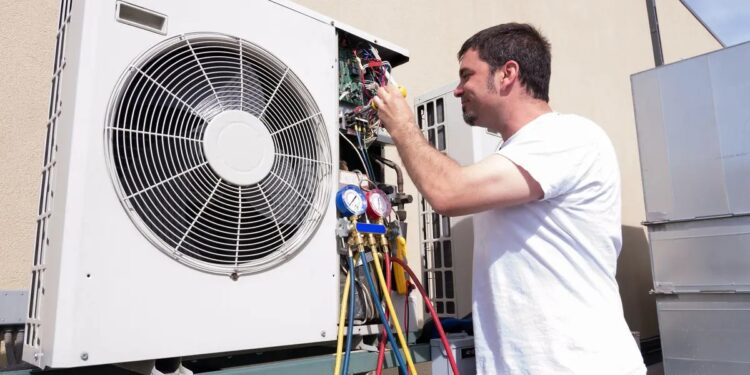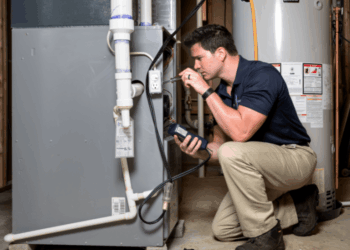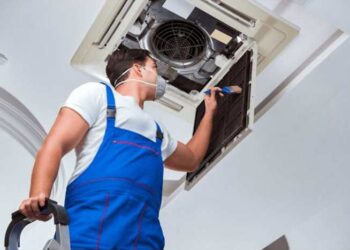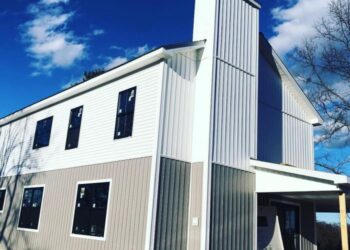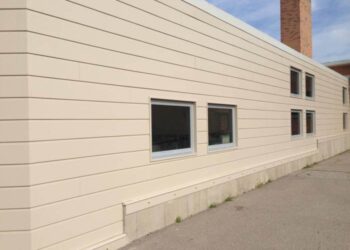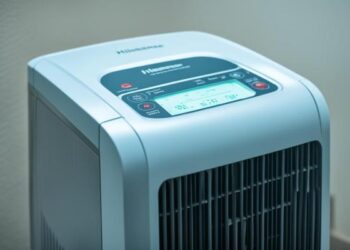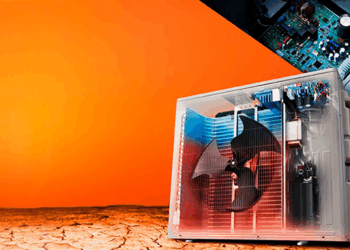Exploring the world of central air conditioner repair, this introduction sets the stage for a comprehensive discussion on common problems, DIY troubleshooting tips, hiring professional services, and the costs involved. Get ready to dive into the nitty-gritty details of maintaining your cooling system!
Common Central Air Conditioner Problems
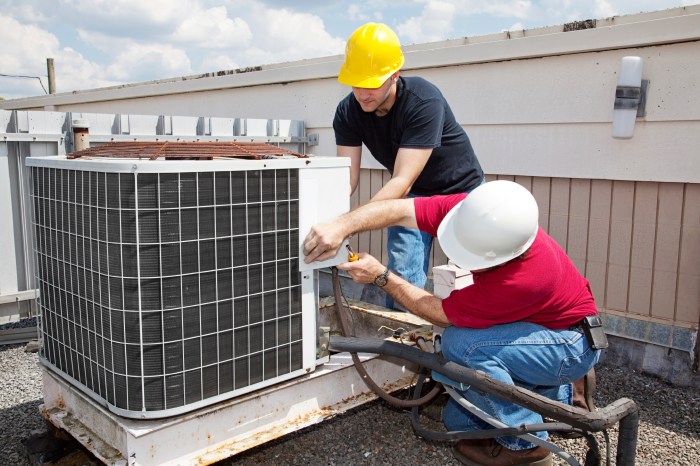
Central air conditioners can experience a variety of issues that may affect their performance and efficiency. It is essential to be able to identify these problems early on to prevent further damage and costly repairs.
Refrigerant Leaks
Refrigerant leaks are a common problem in central air conditioners and can result in reduced cooling capacity. Signs of a refrigerant leak include insufficient cooling, hissing sounds, or ice buildup on the refrigerant line. Professional repair is necessary to locate and fix the leak, as well as recharge the refrigerant levels.
Electrical Issues
Central air conditioners may experience electrical problems, such as faulty wiring or a malfunctioning capacitor. These issues can cause the unit to fail to turn on or provide inadequate cooling. It is crucial to have an HVAC technician inspect and repair any electrical issues to ensure the safe operation of the system.
Frozen Evaporator Coils
Frozen evaporator coils are often caused by restricted airflow or low refrigerant levels. Signs of frozen coils include reduced airflow and warm air coming from the vents. Professional repair is necessary to address the root cause of the issue and prevent further damage to the system.
Dirty Air Filters
Dirty air filters can restrict airflow and reduce the efficiency of the central air conditioner. It is important to regularly replace or clean the air filters to prevent dust and debris from accumulating and affecting the system's performance. Neglecting filter maintenance can lead to more significant issues over time.
Improper Installation
Improper installation of the central air conditioner can lead to various problems, such as uneven cooling, frequent breakdowns, and increased energy consumption. If you suspect that your AC was not installed correctly, it is essential to consult a professional HVAC technician to assess the system and make any necessary adjustments.
DIY Troubleshooting Tips
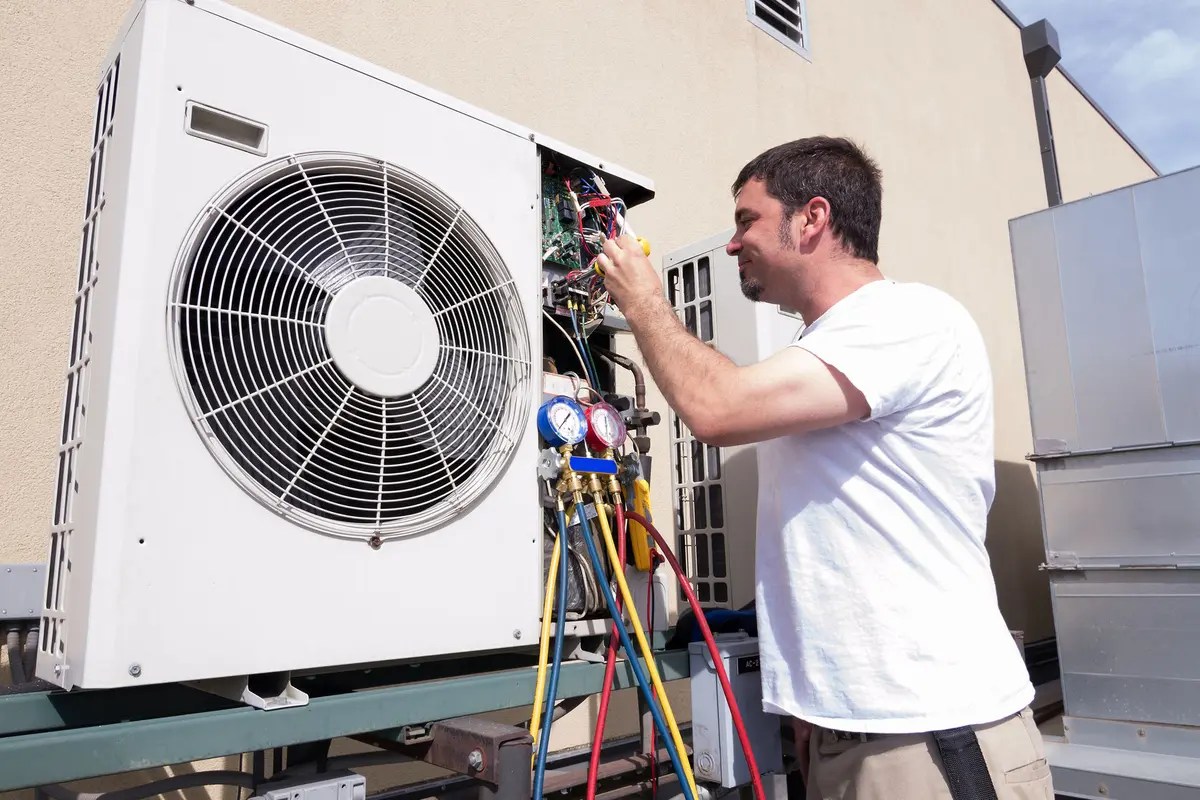
When dealing with central air conditioner issues, there are some basic troubleshooting steps you can take before calling a professional. Not only can this save you time and money, but it can also help you understand your AC system better.
Here are some DIY troubleshooting tips to get you started:
Step-by-Step Troubleshooting
- Check the thermostat settings to ensure they are correctly set for cooling.
- Inspect the air filter and replace it if dirty or clogged.
- Examine the circuit breaker to make sure it hasn't tripped.
- Clean the condenser coils to remove any dirt or debris that may be blocking airflow.
- Inspect the ductwork for any leaks or blockages that could be affecting airflow.
Common Tools Needed for DIY Repairs
- Screwdriver set
- Adjustable wrench
- Needle-nose pliers
- Multimeter
- Vacuum cleaner with attachments
Safety Precautions
- Always turn off the power to the air conditioner before performing any maintenance or repairs.
- Wear gloves and safety goggles to protect yourself from sharp edges and debris.
- Use caution when handling refrigerant to avoid injury or contamination.
- If you are unsure about any repair, it's best to consult a professional to prevent further damage.
Resources for DIY Repair Guides
- Manufacturer's website for specific model guides
- Online forums and communities for troubleshooting advice
- DIY repair books or manuals for air conditioning systems
- Video tutorials on platforms like YouTube for visual guidance
Hiring a Professional Repair Service
When it comes to central air conditioner repair, hiring a professional repair service is crucial to ensure the job is done correctly and efficiently. Here, we will discuss how to compare different HVAC repair companies, what qualifications to look for in a reliable repair service, tips for getting quotes and estimates, and the benefits of hiring a licensed technician.
Comparing HVAC Repair Companies
- Research online reviews and ratings of different HVAC repair companies in your area.
- Ask for recommendations from friends, family, or neighbors who have used HVAC repair services before.
- Inquire about the experience and expertise of the technicians employed by the companies.
Qualifications of a Reliable Repair Service
- Look for a repair service that is licensed, bonded, and insured to protect yourself in case of any accidents or damages during the repair process.
- Check if the technicians are certified by organizations such as NATE (North American Technician Excellence) to ensure they have the necessary skills and knowledge.
- Ensure the repair service offers a warranty on their work to guarantee the quality of the repairs.
Getting Quotes and Estimates
- Get quotes from multiple HVAC repair companies to compare prices and services offered.
- Ask for a detailed breakdown of the costs involved in the repair, including labor, parts, and any additional fees.
- Avoid choosing a repair service solely based on the lowest price, as quality of work should be the primary consideration.
Benefits of Hiring a Licensed Technician
- Licensed technicians have undergone training and certification to ensure they have the knowledge and skills to repair central air conditioners correctly.
- They are familiar with local building codes and regulations, ensuring the repair work complies with safety standards.
- Hiring a licensed technician gives you peace of mind knowing that the repair will be done professionally and efficiently.
Cost of Central Air Conditioner Repairs
When it comes to central air conditioner repairs, understanding the potential costs involved is crucial for budgeting and decision-making. Let's break down the common repair costs, factors influencing these expenses, tips for saving money, and when it might be more cost-effective to repair or replace the unit.
Breakdown of Common Repair Costs
- Replacing a capacitor: Typically costs around $150-$350.
- Fixing a refrigerant leak: Can range from $200-$1,500 depending on the severity.
- Repairing a faulty compressor: Expect to pay $1,500-$2,500 for this major component.
Factors Influencing Repair Costs
- Age of the unit: Older systems may require more expensive repairs due to obsolete parts.
- Extent of the damage: The severity of the issue will impact the final repair bill.
- Professional fees: Labor costs can vary based on the expertise and location of the repair service.
Tips for Budgeting and Saving on Repairs
- Regular maintenance: Preventive care can help avoid costly repairs in the long run.
- Compare quotes: Get multiple estimates from different repair companies to find the best price.
- DIY solutions: Simple tasks like changing filters or cleaning coils can save you money on service calls.
Repair vs. Replacement Cost Comparison
It's important to consider the age of your unit, the frequency of repairs, and energy efficiency when deciding between repairing and replacing your central air conditioner. In some cases, investing in a new unit may be more cost-effective in the long term, especially if your current system is outdated and inefficient.
Wrap-Up
Wrapping up our exploration of central air conditioner repair, we've covered everything from DIY fixes to the importance of professional services and cost considerations. Remember, a well-maintained air conditioner is the key to staying cool and comfortable all year round.
Questions Often Asked
How often should I schedule maintenance for my central air conditioner?
Maintenance should ideally be scheduled at least once a year before the cooling season begins to ensure optimal performance.
What are some common signs that indicate my central air conditioner needs professional repair?
Unusual noises, inadequate cooling, strange odors, and frequent cycling on and off are all signs that your unit may require professional attention.
Is it possible to troubleshoot central air conditioner issues on my own?
Yes, you can troubleshoot basic problems like a clogged filter or thermostat issues. However, more complex issues may require professional assistance.

